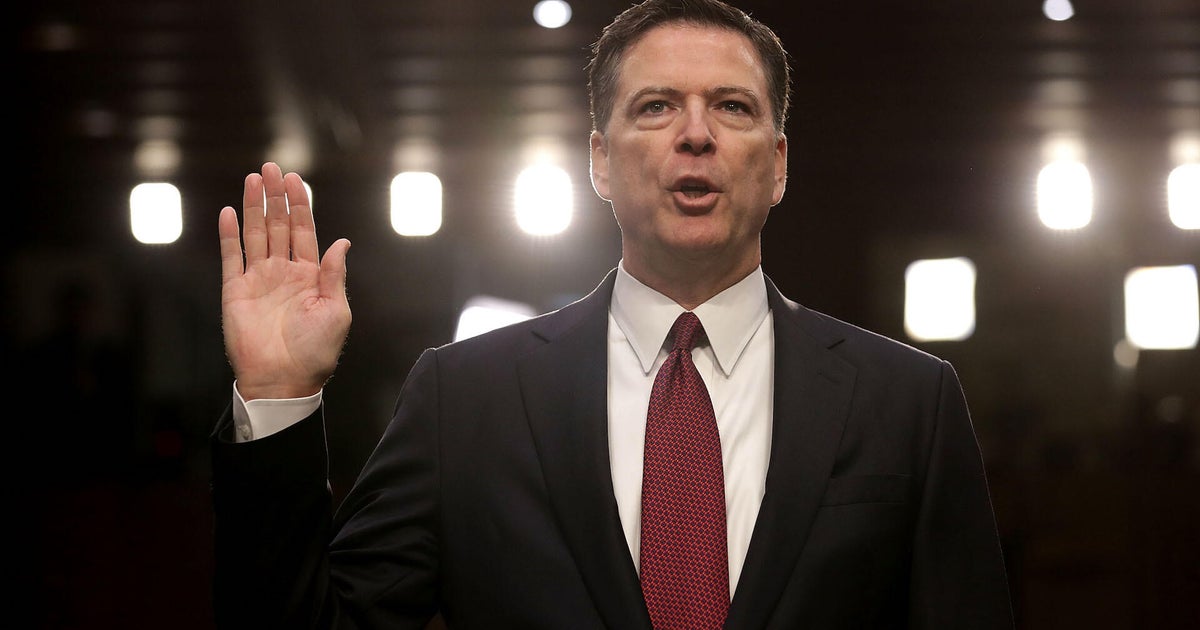Comey Indictment: MAGA Retribution and Implications Amid Political Tensions

The First Domino: Comey Indictment
Former FBI Director James Comey has been indicted on two counts: making false statements and obstruction of justice, marking a significant development in a politically charged saga. The indictment stems from Comey’s 2020 Senate Judiciary Committee testimony about his handling of the Trump-Russia investigation. This legal action signals the Justice Department’s commitment to accountability, emphasizing that no one is above the law, as Attorney General Pamela Bondi stated.
MAGA Retribution in Motion
President Donald Trump reacted to the indictment by asserting that others involved are corrupt and suggesting this is only the beginning of a broader effort to pursue political adversaries. The charges follow Trump's recent moves to replace key prosecutors who had expressed doubts about pursuing cases against figures like Comey. This development is viewed by many as the first step in a wider MAGA-driven push for justice against perceived enemies within the federal establishment.
Implications and Future Outlook
The Comey indictment may set a precedent for further investigations and legal actions involving high-profile political figures. It reflects ongoing tensions between political factions and highlights the Justice Department’s intensified focus on alleged abuses of power. As this story unfolds, it could have lasting impacts on public trust and the political landscape ahead of upcoming elections.
About the People Mentioned
James Comey
James Brien Comey Jr. (born December 14, 1960) is an American lawyer who served as the seventh Director of the Federal Bureau of Investigation (FBI) from September 2013 until his dismissal in May 2017. Before leading the FBI, Comey held prominent roles in the U.S. Department of Justice, including U.S. Attorney for the Southern District of New York (2002–2003) and Deputy Attorney General (2003–2005), the latter being the second-highest position in the DOJ. After leaving government service in 2005, he worked as general counsel for Lockheed Martin and Bridgewater Associates, and was a scholar at Columbia Law School[1][3][4]. Appointed by President Barack Obama, Comey’s tenure as FBI director was marked by high-profile investigations. He oversaw the inquiry into Hillary Clinton’s use of a private email server while Secretary of State. In July 2016, he publicly criticized Clinton’s judgment but cleared her of criminal charges. However, shortly before the 2016 presidential election, Comey controversially announced the reopening of the investigation based on new emails, which many analysts believe influenced the election outcome that favored Donald Trump[1][2][5][9]. Under President Trump’s administration, Comey confirmed the FBI’s investigation into possible Russian interference and contacts with the Trump campaign. This period included Comey’s public refutation of Trump’s unsubstantiated wiretapping claims. On May 9, 2017, President Trump abruptly fired Comey, a decision that drew extensive media attention and political debate[2][5]. Most recently, in September 2025, Comey was indicted by a federal grand jury on charges of making false statements and obstruction[9]. His career remains significant in discussions of U.S. law enforcement and political history.
Donald Trump
Donald John Trump, born June 14, 1946, in Queens, New York, is an American businessman, media personality, and politician. He graduated from the University of Pennsylvania’s Wharton School in 1968 with a degree in economics. In 1971, he took over his family’s real estate business, renaming it the Trump Organization, through which he expanded into building and managing skyscrapers, hotels, casinos, and golf courses. Trump gained widespread fame as the host of the reality TV show *The Apprentice* from 2004 to 2015, which helped establish his public persona as a successful entrepreneur. Trump entered politics as a Republican and was elected the 45th president of the United States, serving from 2017 to 2021. His presidency was marked by significant policy actions including tax cuts, deregulation, the appointment of three Supreme Court justices, renegotiation of trade agreements (notably replacing NAFTA with the USMCA), and a focus on immigration control including border wall expansion. He withdrew the U.S. from international agreements such as the Paris Climate Accord and the Iran nuclear deal, and engaged in a trade war with China. His administration’s response to the COVID-19 pandemic was criticized for downplaying the virus’s severity. Trump was impeached twice by the House of Representatives—first in 2019 for abuse of power and obstruction, and again in 2021 for incitement of insurrection—but was acquitted by the Senate both times. After losing the 2020 election to Joe Biden, Trump challenged the results, culminating in the January 6, 2021, Capitol riot. He remains a central figure in American politics, having won the 2024 presidential election and returned as the 47th president in 2025, continuing to promote policies aimed at economic growth, border security, and military strength[1][2][3][4].
About the Organizations Mentioned
FBI
The Federal Bureau of Investigation (FBI) is a premier law enforcement agency in the United States, renowned for its role in protecting the nation from domestic and international threats. Founded on July 26, 1908, as the Bureau of Investigation, it was initially tasked with addressing land fraud and corporate malfeasance under President Theodore Roosevelt[1][2]. Over time, its mandate expanded significantly, particularly with the passage of the Mann Act in 1910, which allowed federal jurisdiction over certain moral offenses[1][4]. ### History and Evolution The FBI underwent significant transformation under J. Edgar Hoover, who became its director in 1924. Hoover implemented strict hiring standards and enhanced operational capabilities, transforming the agency into a robust investigative force[1][4]. The FBI's name was officially changed to the Federal Bureau of Investigation in 1935[5][6]. Throughout its history, the FBI has faced challenges, including concerns about potential abuses of power, but it has consistently demonstrated its value in national security and law enforcement[3][4]. ### Key Achievements The FBI has been instrumental in combating various crimes, including white-collar offenses, civil rights violations, and national security threats. Notable achievements include its role in enforcing the Espionage Act during World War I and its investigations into organized crime throughout the 20th century[2][4]. ### Current Status Today, the FBI is a sophisticated agency with over 37,100 employees, including special agents and professionals in various fields such as intelligence analysis and cybersecurity[5]. It operates in 55 field offices across the U.S. and has an international presence in 81 nations[5]. The FBI continues to evolve, addressing emerging threats like cybercrime and terrorism while maintaining its commitment to justice and integrity. ### Notable Aspects The FBI is known for its rigorous training programs at the FBI Academy in Quantico, Virginia, and its advanced forensic capabilities at the FBI Laboratory. Its work in business and technology includes
Senate Judiciary Committee
The **United States Senate Committee on the Judiciary** is a key standing committee in the U.S. Senate, established in 1816, making it one of the oldest and most influential committees in Congress[2][4][5]. Its primary role encompasses oversight of the federal judiciary and Department of Justice (DOJ), consideration of judicial and executive nominations, and review of legislation related to constitutional, criminal, civil rights, antitrust, immigration, intellectual property, and internet privacy laws[2][4][8]. The committee is responsible for holding confirmation hearings and investigating the backgrounds of presidential nominees to the Supreme Court, federal courts of appeals, district courts, and certain executive branch positions such as the Attorney General and FBI Director[3][2]. It plays a crucial gatekeeping role, vetting nominees before reporting them to the full Senate, which votes on confirmation[2][3]. This process has become more politically charged over time, reflecting the committee's importance in shaping the judiciary[3]. Historically, the Judiciary Committee has been instrumental in administering the judicial system of the United States, reforming judicial procedures, and protecting constitutional rights such as due process and civil liberties[1][4]. It also oversees antitrust enforcement and consumer protections, guarding against monopolies and promoting fair competition[1]. The committee's legislative jurisdiction extends broadly, covering constitutional amendments, federal criminal law, human rights, and other critical legal areas[2][4][8]. Key aspects include its subcommittees specializing in areas like antitrust, immigration, crime, federal courts, intellectual property, privacy, and constitutional issues, which enable detailed oversight and legislative work[7]. The committee has a membership of 22 senators and is a central platform for public discussion on social and constitutional issues[2][7]. In the context of business and technology, the Judiciary Committee’s oversight of antitrust laws and intellectual property, along with its influence on privacy and internet legislation, makes it a pivotal actor in regulating how technology companies
Justice Department
The United States Department of Justice (DOJ) is the principal federal agency responsible for enforcing federal laws, ensuring public safety, and protecting civil rights. Headquartered in Washington, D.C., the DOJ operates under the leadership of the Attorney General, who serves as a key member of the President’s Cabinet. As of 2025, Pam Bondi holds this position, having taken office in February and quickly shaping the department’s priorities. Established in 1870 during President Ulysses S. Grant’s administration, the DOJ’s roots trace back to the creation of the Attorney General’s office in 1789. Over the years, it has grown into a vast organization with more than 115,000 employees and over 40 component agencies, including the Federal Bureau of Investigation (FBI), Drug Enforcement Administration (DEA), and U.S. Marshals Service. The DOJ also houses specialized divisions for criminal, civil, antitrust, tax, civil rights, and national security matters, and oversees 94 U.S. Attorney offices nationwide. The DOJ’s mission centers on upholding the rule of law, safeguarding national security, and defending civil liberties. In 2025, the department has shifted its enforcement focus, prioritizing areas such as healthcare fraud, customs and tariff evasion, and corporate misconduct, especially involving foreign adversaries and financial gatekeepers. Recent policy changes have emphasized efficiency in investigations and reduced reliance on corporate compliance monitors, reflecting a broader effort to minimize regulatory burdens on businesses. Notably, the DOJ has also been tasked with reviewing past government conduct to address concerns about the “weaponization” of federal agencies, ensuring accountability and restoring public trust. For business and technology leaders, the DOJ’s evolving priorities—particularly in areas like cybersecurity, antitrust, and international trade—have significant implications for compliance, risk management, and corporate governance.














